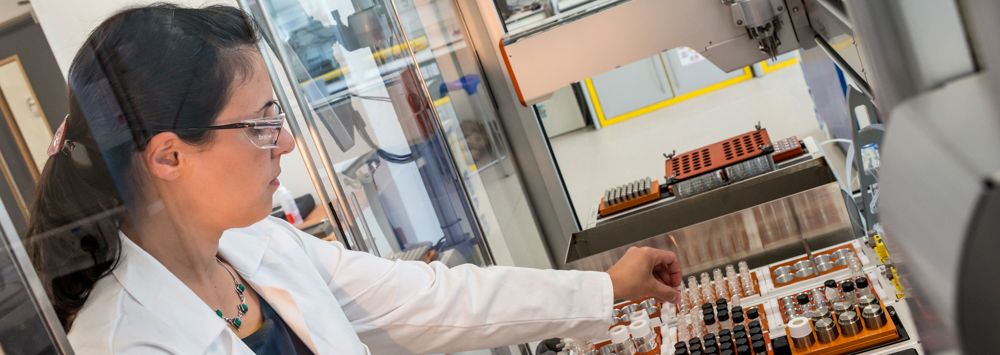
About Us
The MicroBioRefinery (MBR) is a research facility in the Chemistry Department in the University of Liverpool that provides academic and industrial partners with access to:
- state of the art high-throughput synthesis,
- characterisation and testing facilities,
- expertise to develop novel routes and functional materials from biomass and bio-derived feedstock
The project aims to promote environmentally sustainable operations and extend the capabilities of the Centre for Materials Discovery (CMD), leading to the opening of the Materials Innovation Factory (MIF) to include high-throughput bio-refining, creating a unique research facility in the UK for the upgrade of biomass via bio and chemo-catalytic routes. The MBR is the result of a £2.83million award from the Regional Growth Fund to Unilever to establish this open access biorefinery research facility in the University of Liverpool.
Unilever is committed to growing in a sustainable manner and the Unilever Sustainable Living Plan (ULSP) sets out how Unilever will double the size of its business by 2020 whilst reducing its environmental impact. The MBR provides a key capability for discovery and development of new functional actives from biomass. Visit the Unilever website for more information on the USLP.
The Micro Bio Refinery (MBR), established in collaboration with Unilever and AB Sugar, is a new, state-of-the-art facility that identifies and designs the next generation of sustainable chemicals derived from agricultural, forestry and food residues and waste.
Industry, researchers and start-up companies can access the facility and its expertise to identify new materials that can be made from the by-products of crops like wheat, corn, sugar, beet and other biomass sources.
Opened in spring 2014, the new facility – the only one of its type in the world - gives a huge boost to the quest to find new organic and sustainable chemicals. It brings together academic and industrial expertise to bridge the gaps between identifying new sustainable chemicals in the laboratory, transforming and testing them in small quantities with the ambition of seeing them used by industry.
A new generation of sustainably sourced chemicals are required to replace current petrochemical feedstocks which depend on fossil fuels. The MBR improves current biorefinery technologies and processes and tackles some of the challenges which have hindered the development of organic chemicals including scaling up for industry, efficiency and economic viability.
It allows substances to be analysed at speeds and orders of magnitude greater than previously possible significantly increasing the probability of finding valuable new chemicals.
The University currently operates the new MBR unit with Unilever as the main partner. Allied to the existing strategic partnership between the two organisations, the MBR provides a green chemistry and biotechnology platform to create a world-class scientific network within the North West.